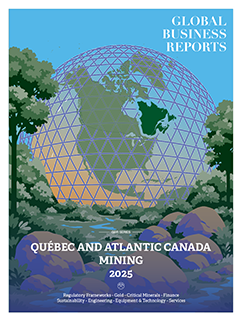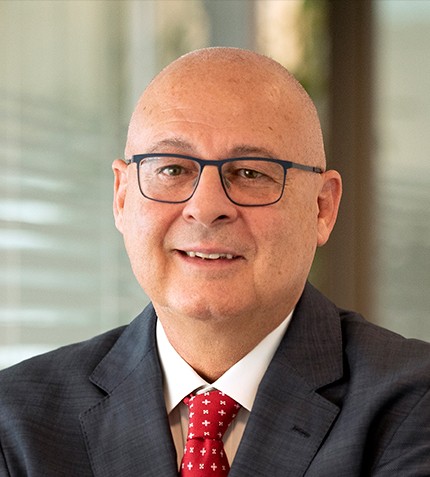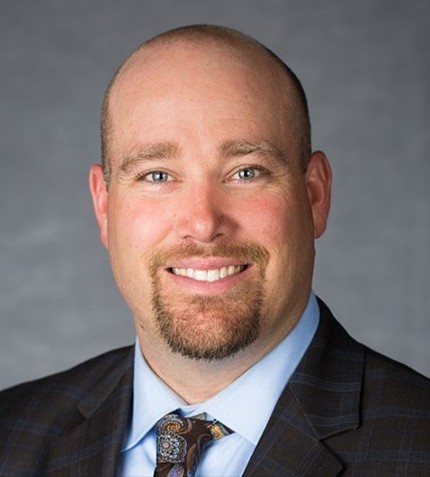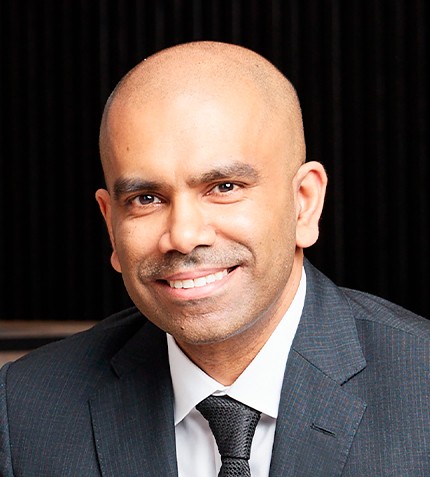
"Recognizing the high-risk nature of the sector, Québec has built a portfolio of tools to attract investment and support project success."
RELATED PUBLICATION
Maïté Blanchette Vézina
MINISTER OF NATURAL RESOURCES AND FORESTS, GOVERNMENT OF QUÉBEC
Now that Bill 63’s Amendments to Québec’s Mining Act are in force, how would you describe their significance?
The goal of amending Québec’s Mining Act was to modernize the legal framework for managing natural resources. With rising interest in critical minerals, we aimed to ensure the law supports social acceptability and provides regulatory stability. The new framework offers clarity for both citizens and companies. Another key objective was to accelerate project development. We are updating and expanding our 2020 development plan, reinforcing Québec’s leadership in environmentally responsible mining while maintaining a competitive business environment.
We also withdrew the possibility for exercising mining activities on private land and on lands located within urbanization perimeters, unless the lands where already subject to a mining right or exploration work had been performed and approved by the ministry. However, regional county municipalities may, after consulting the local municipalities concerned, ask the Minister for the partial or total lifting of such withdrawals.
Lastly, some of the amendments aim at encouraging dialogue and fostering better understanding and cooperation with local communities. For example, before beginning exploration work, companies must now transmit an annual exploration work planning to the representatives of every local municipality located in the region of the land subject to the mining right and every Indigenous nation or community concerned. These representatives may also request that a company hold an information session with them concerning the annual work planning.
Industry stakeholders have expressed concerns about the extension of discretionary powers granted to you as Minister. How would you respond?
Discretionary powers were included to improve coexistence between projects and communities. These are exceptional measures, rarely used, and not intended to block development. Since the law was adopted, I have had no intention of exercising them. Their purpose is to enhance social acceptability and ensure projects move forward more smoothly. Lastly, it is important to note that most of these discretionary powers require that a notice of proposed decision be sent to the mining right holder. The holder may submit any concerns or new facts to the ministry before the decision is made.
What did the 2020–2025 Critical and Strategic Minerals Development Plan achieve, and what are your future plans?
The original plan concluded this spring, and we secured CA$428 million in renewed funding to continue. We are now consulting to update the plan, focusing on accelerating the development of 32 critical mineral and 49 advanced mining projects. Results have been strong: a 50% rise in project numbers and a 235% surge in exploration spending. Québec is now internationally recognized as a leader in mining, particularly in battery materials and processing.
Could you offer a preview of the updated mining strategy?
The next phase of Québec’s critical and strategic minerals strategy will emphasize accelerating mining projects but also on circularity and waste valorization. For mines in operation, as stated within the Mining Act modification, tailings content will have to be documented and sent to the Ministry for a better knowledge of potential valorization. The plan aims to convert passive sites into productive assets while streamlining permitting for projects with environmental benefits. Circularity will be a central pillar, supporting both sustainability and resource efficiency in the province’s evolving mining strategy.
How is Québec positioning itself internationally, particularly with respect to evolving relations with the United States?
At present, just 6% of Québec’s raw mineral exports go to the US, and we are strengthening ties with Europe and Asia. Recent agreements with France and the Netherlands support cooperation in exploration, financing, and knowledge sharing. One Québec project was even named a priority by the European Commission, reflecting years of diplomatic work and boosting opportunities for our mining partners.
What makes Québec such an attractive jurisdiction for mining investment?
Québec offers a stable, competitive environment with clear regulations and strong fiscal incentives, including tax credits for exploration and development. The government also partners with companies to advance projects and build social acceptability. Even as laws evolve, regulatory clarity remains a priority. Recognizing the high-risk nature of the sector, Québec has built a portfolio of tools to attract investment and support project success. This combined approach ensures that mining developments are both economically viable and welcomed by local communities.











